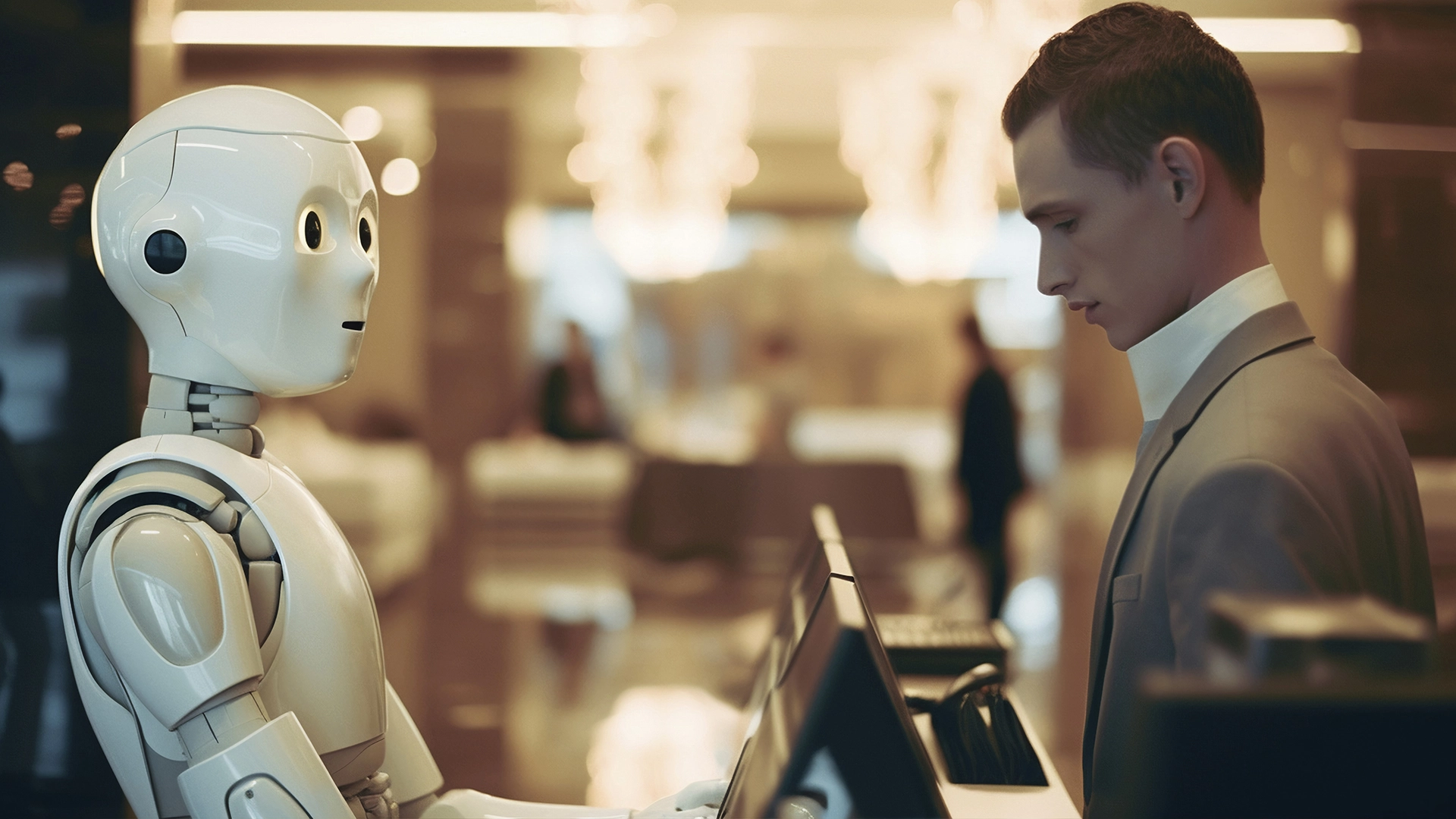
Image by Freepik
Humanlike Robots Negatively Affect How Consumers Treat Real Employees
New research shows that as robots and AI become more humanlike, they can unintentionally cause people to see real humans as less human—and treat them worse.
In a rush? Here are the quick facts:
- Perceiving social AI leads to dehumanization of employees.
- Robots with nonhuman traits reduce the dehumanization effect.
- Exposure to humanlike AI lowers donations for employee welfare.
The study, published on SCP, found that when people notice strong social and emotional abilities in autonomous agents, such as virtual assistants or service robots, they tend to think of these machines as having human minds.
This makes people “assimilate” the machines and humans in their minds, leading to a lowered sense of humanness toward real people. The researchers call this “assimilation-induced dehumanization.”
“This dehumanized perception of people leads to negative attitudes and behaviors toward employees,” the paper explains.
When customers interact with AI that seems very humanlike, they may unconsciously reduce how human they see actual employees, which can cause mistreatment.
The effect was observed across different types of machines, both physical robots and disembodied AI like chatbots, and in real and imagined consumer scenarios. For example, people exposed to humanlike AI donated less to employee welfare and made harsher choices about employees in studies.
Interestingly, the study found that this negative effect is lessened if the autonomous agent has traits very different from humans, or if it is seen as having only cognitive (thinking) abilities rather than social or emotional ones.
Simply giving a product a humanlike look without social or emotional features doesn’t cause the same problem.
The researchers warn that as more industries use robots and AI, companies need to be aware of this side effect. “Consumers oftentimes initially engage with chatbots for basic questions and then get relayed to human employees,” they wrote.
If people think machines have a human mind, “people’s attitudes and behaviors toward employees” can worsen, at least temporarily.
To counter this, the study suggests that companies clearly mark the differences between humans and machines. For example, reminding customers when they switch from a chatbot to a real person might help maintain respect for human workers.
The research also raises concerns about how this dehumanization might affect employees themselves and wider social interactions, including reduced kindness between consumers.
In short, while humanlike AI offers many benefits, it can unintentionally blur the line between humans and machines. Understanding this can help businesses and society protect human dignity as technology advances.


 Previous Story
Previous Story

 Latest articles
Latest articles 